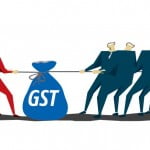
The Cellular Operators Association of India (COAI) and Association of Unified Service Providers in India (AUSPI) have knocked the doors of Delhi High Court for a stay on the telecom regulator’s compensation policy for call drops, under which a rupee will be credited to the mobile users’ account for every call drop (restricted to three per day) starting January 2016.
In their petition, COAI said the Telecom Regulatory Authority of India (Trai) does not have the power to grant compensation to end-subscribers under the Trai Act.
“The grant of compensation requires an adjudication to establish a breach and then determine liability of the party responsible for such a breach. Trai does not have the power to adjudicate under the Trai Act and therefore, the decision to grant compensation is without authority of law, without jurisdiction and is illegal,” said COAI in a statement.
In the Standards of Quality of Service Regulations, 2009, the matter of compensation is already covered. These regulations specify parameters and benchmarks for network coverage, with a call-drop parameter of two per cent and prescribe financial disincentives for failing to meet the benchmark.
Besides, the regulator has also not taken into account the factors which are beyond the control of service providers, including closing down and sealing of cell-sites, spectrum-related issues, including return/change/swap of spectrum (particularly in Delhi and Mumbai), which are substantially responsible for call drops.
On October 15, Trai had mandated telcos to pay subscribers Rs 1 for every call drop they experience on their network, subject to a cap of three call drops a day.
Subsequently, telecom players had said due to this rule, the outgo from the sector would be around Rs 54,000 crore annually, but Trai had debunked these claims and said the outgo would be only around Rs 800 crore per year.
Prior to moving court, telcos had written a letter to Trai saying the compensation policy for call drops is grossly unjust and will negatively impact the interests of the consumers as well as the service providers. Also, to recover the cost of compensation, telecom operators will have to increase tariffs, COAI had said earlier.
The operators are taking all steps to address the issue of call drops but the regulation proposed by Trai may not be the solution to the challenge.
There are many sectors providing utility services such as roadways, electricity but it is the private players in the mobile industry who have been singled out for such harsh penalising regulations, albeit on an issue where almost 80 per cent of the factors involved are beyond the control of the telecom operators, COAI said on Thursday.
The issue of dropped calls is quite limited to a select number of urban centres where there is congestion both in terms of traffic, as well clutter in terms of urban infrastructure, besides a rapid reduction of mobile towers in such locations/cities, which finally impact the overall quality of service.
[“source -searchengineland”]




